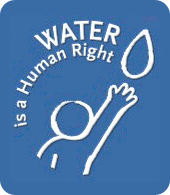Spyer: Two autonomous Kurdish entitites, two rival pan-Kurdish movements
Mr. Jonathan SPYER's speech, Middle East Analyst, Israel
In this talk, I want to look in detail into the nature and extent of this opportunity, noting both its promise and its limitations, as I see them, and conclude by looking at the western response to these developments. I should mention that the focus of my research is Syria, and this may to some degree influence the focus of this talk.
First, then, the nature and extent of the opportunity.
Two autonomous Kurdish entities have arisen, in a contiguous land area, as a result of the collapse, or retreat, under very different circumstances, of two neighboring Arab nationalist dictatorships – in Iraq and in Syria.
Within these entities, roughly a third of the total number of Kurds are now resident – around 6.7 million in the KRG in northern Iraq, and somewhere between 2 and 3 million in the PYD controlled autonomous zone of ‘Rojava’ in north east Syria.
The Kurds of Iran remain untouched by these events, and continue to live under severe repression, which has recently included mass arrests and a series of executions of activists in the Kordestan region of western Iran.
The Kurds of Turkey, the largest single population, are engaged in a peace process with the government of Prime Minister Recep Tayepp Erdogan, the outcome of which is not yet clear. On core issues, such as the matter of Kurdish language instruction in state schools, and the release of thousands of Kurds jailed under not yet amended counter terror provisions of the penal code there is not yet agreement. As a result, the process is currently deadlocked.
The situation of and the relationship between these two existing very different Kurdish autonomous areas is greatly complicated by their widely differing relations with neighboring powers.
The KRG has a positive and developing relationship with the government of Turkey, based on compatible economic needs, - above all oil in return for electricity - and an absence of any areas of major dispute.
They share also a skepticism or hostility to the emergence of the other Kurdish enclave - PYD-dominated ‘Rojava’ - for comparable reasons. Rojava, is under the control of the PYD, associated with the PKK, which has been at war with Turkey since 1984.
From the Turkish point of view, the emergence of Rojava represents a strategic gain for the PKK. Its control of a 500 km stretch of border between Syria and Turkey could increase its potential for disruption in the event of renewed conflict.
Its existence therefore serves perhaps as an impetus for the peace process, but also as a threat from the Turkish point of view if the process runs aground, as it has. And one notes the recent tightening up of border controls by the Turks, their cutting off of communication with the PYD, and the beginning of the construction of a wall along the border.
Ocalan’s PKK and Barzani’s KDP constitute rival pan-Kurdish movements, each with a deep suspicion of the other. The failure of the 2012 Hawler agreement to ensure the joint governance of Rojava by the PYD and the KNC (association of Barzani supporting Syrian Kurdish parties) has led the KRG to regard Rojava as the fiefdom of its rivals.
The unfortunate bottom line result of all this confusing criss-crossing network of relationships, from a Kurdish point of view, is that it gives the government of Turkey a kind of veto over any prospects of Kurdish unity in the foreseeable future. That is, because of the KRG-PKK rivalry, the close relations between Turkey and the KRG, the primary importance placed upon this relationship by the KRG, the consequent shared hostility to PYD controlled Rojava, and the absence of any international guarantees for Rojava, Turkey possesses a mechanism for preserving the division of the Kurds.
This mechanism, and the consequent deep estrangement of the two entities, has of course much graver implications for Rojava than it has for the KRG.
Both Kurdish entities have come into being as a result of the inability of the Arab dictatorships in their respective areas to continue to imprison the Kurdish population.
However, of course the relative extent to which this is the case is a major difference between the KRG controlled area and Rojava.
In the case of the KRG, the rupture is clear and permanent, the former dictator is dead and the regime he was part of is part of history. The KRG has emerged as the most stable and quiet part of Iraq.
In a series of showdowns with the government in Baghdad in the course of 2012, it showed that it could defend itself if it needed to from any physical threat from the central government.
Economically, it is progressing apace, and in this regard, of course, the relationship with Turkey and the oil pipeline to Ceyhan remain of particular importance. The KRG is also slowly developing the machinery of statehood, shrewdly avoiding adventures into the disputed areas, or any premature declaration of sovereignty.
It is progressing diplomatically, too, incrementally increasing the number of representative offices in its capital.
Given all this, the KRG now has the look of a permanent feature in the neighborhood. Short of disaster, it is hard to see how this foothold of Kurdish quasi-sovereignty could disappear.
Rojava is a far more provisional, tentative and vulnerable achievement. The dictator of the country in question is not dead, and he has not lost power. His rule is now limited to around 40% of the area in question, but he fully intends to win back control of Syria and the tide of the war on the ground is now, worryingly, in his favor. Should he succeed in doing so, it is a certainty that he would then reimpose control on the north east of the country.
The Syrian Arab rebels, too, are committed to the maintenance of a unitary Syrian state, and it is noteworthy that the relatively ‘moderate’ Islamist rebels of the Tawhid Brigade and others joined ISIS in recent weeks in fighting against the Kurdish forces of the YPG, which they regard as seeking to divide the country and in league with Assad.
Diplomatically, Rojava is without local allies outside of the PKK, or regional or international relations or sponsorship. Yet the YPG has nevertheless so far managed to defend itself on the ground, laying in place the most basic requirement for rule, namely, a monopoly of the means of force. This achievement represents a major step forward for the Kurds, by any reckoning, but its future remains uncertain.
Thus, then, the curious Kurdish contemporary reality. Major gains, but in very specific areas. Unity still elusive. Instead, two entities. The KRG, at least, seems to have an assured future. Rojava’s future is much less certain.
The emergent pan-Kurdish politics is one which pits two very different national movements against one another – Barzani’s KDP centered on the KRG area, but encompassing sister parties in all the other areas of Kurdish population, and the very different rival movement of the PKK, traditionally centered on north or Turkish Kurdistan, but now the de facto sovereign of north east Syria.
To an outside analyst, the continued fact of Kurdish disunity looks inevitable. To a sympathetic outside observer, its persistence is deeply regrettable, acting as a major brake to Kurdish aspirations.
From the same sympathetic outsider’s point of view, the frustrating element of the absence of unity is the ability this gives to unfriendly or hostile outside forces to wield influence for their own benefit among the Kurds. The Erdogan-KDP alliance mentioned earlier is the most obvious candidate in this regard. Some Kurds allege a parallel relationship between the PKK and Assad’s regime or even the Iranians as a similar and equally unwelcome phenomenon.
Disunity is regrettable. It isn’t yet a tragedy, of course. Two thriving Kurdish entities would still represent a remarkable advance in the last decade. But if the autonomy in north-east Syria were to be lost because of fractiousness and disunity, this would be a tragedy. As things currently stand, I am uncertain that this outcome could be prevented in the event of a move by the regime or the rebels following their victory. In this regard, it is probably the case that a continued de facto partition of Syria is a prerequisite for the continued existence of autonomous Rojava. But a rapprochement between the KDP and the PKK and a resultant KRG guarantee of commitment to Rojava’s survival would vastly increase its chances in the longer term.
This leads me to my final point – namely, that looked at in a big picture way, both the KRG and Rojava are the product of the eclipse of those states that ruled in the name of Pan-Arab nationalism. It seems to me that in the longer term, the playing out of this process and the permanent fracturing of these states may be a prerequisite for the emergence of genuine Kurdish autonomy or sovereignty on either side of the rapidly fading borders of Syria and Iraq.
The problem is that the US and other western states remain committed to the continuation of Iraq and of Syria as single, sovereign states. For as long as this remains a pre-requisite of western diplomacy, Kurdish aspirations must inevitably appear as disruptive and unwelcome.
My view, and on this I will conclude, is that the efforts of the Kurds and their friends in the context both of Washington and of Europe ought to be toward seeking to convince their partners that the splitting of these states into their component parts represents a better chance for stability in the longer term than the effort to artificially contain the aspirations of their component peoples within state borders that have often more closely resembled prison walls than accepted boundaries between legitimate countries. This would mean, in concrete terms, seeking the commitment of western states to the survival both of the KRG and of Rojava. Preventing Rojava’s isolation and bringing about a KRG underwriting of its future would be a major contribution toward this.
10th INTERNATIONAL CONFERENCE ON
"THE EUROPEAN UNION, TURKEY AND THE KURDS"
Turkey, the Kurds and the Imrali Peace Process:
An Historic Opportunity
Brussels, European Parliament, 4th & 5th of December 2013
* * * * * * * * * * * * * * * * * * * * * * * * * * * * * * * * * * * * * *
Mr. Jonathan SPYER's speech
Middle East Analyst, Israel
* * * * * * * * * * * * * * * * * * * * * * * * * * * * * * * * * * * * * *
Brussels, 5th December 2013


